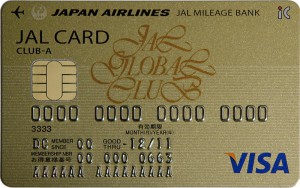 A change is coming. It’s scheduled to affect every US consumer that uses credit or debit cards, and, in turn, every US business. Three letters, EMV, are fast becoming a part of business owners’ lexicon. With it comes confusion, regulations and, for some Syracuse, NY businesses, opportunity.
A change is coming. It’s scheduled to affect every US consumer that uses credit or debit cards, and, in turn, every US business. Three letters, EMV, are fast becoming a part of business owners’ lexicon. With it comes confusion, regulations and, for some Syracuse, NY businesses, opportunity.
What Is EMV?
EMV stands for Europay, MasterCard and Visa, the three companies who originally created the chip-based card reading technology. An example of cards that meet this standard can be seen below.

An example of a card enabled with EMV technology.
How Does EMV Work?
Cards that meet EMV standards are intended to be more secure compared to payment cards that use a stripe that is swiped. The swiped stripe that’s currently widely used in the US holds unchanging data. Because the data associated with the stripe is unchanging from one transaction to another, if a hacker compromises the card’s data, the cybercriminal will have access to sensitive information related to the card and cardholder. If someone steals the data from a card’s stripe, then the person who stole the data can use the card for fraudulent charges.
EMV cards address this security flaw by creating a code that’s unique to each transaction. If someone steals the data from a transaction on an EMV card, they won’t be able to use the card for fraudulent charges because the data that’s stolen is unique to a single transaction and can’t be used again. Conversely, if someone steals the data from a card that uses a stripe rather than an EMV chip, a hacker could copy this data and repeatedly use it to run up charges on the card.
Banking institutions are embracing the added security. “We’re quite excited to roll it out to the members. It’s an extra security feature. It’s an extra level of security for both us and the consumer,” said Courtney Fulmer, Member & Community Relations representative for SECNY Federal Credit Union.
For a customer to use an EMV card, businesses will need to upgrade their payment processing software to allow EMV chips to be dipped in to a terminal rather than swiped.
What Are the EMV Requirements?
Starting October 1, 2015, businesses that don’t have the processing software necessary to accept payment through EMV cards will be liable for any fraudulent card charges that happen on a card used at their business. This shifts the liability of fraudulent card charges from the card issuers to merchants where the card is used.
However, not all consumers have EMV cards after October 1. Only 25% of U.S. debit cards and 60% of U.S. credit cards are predicted to meet EMV standards by the end of 2015.
How Will EMV Affect Businesses?
Businesses will need to upgrade to EMV compliant point-of-sale software to protect from the potentially high liability costs of fraudulent charges. Because of this, businesses that provide EMV compliant software, such as point-of-sale software or ATMs, should see an increase in demand. Onondaga Cash Register sells point-of-sale software to businesses.
“We’ve had customers come to us in a panic,” said Doug Zombek, owner of Onondaga Cash Register. Despite the liability shift, Zombek says the level of urgency for EMV compliant software varies for different types of businesses.
“A lot of restaurant owners have never gotten a charge back, so they’re looking at it as ‘It’s not been an issue in the past, why do I have to spend thousands of dollars now to prevent something I’ve never had a problem with in the past?’” Zombek explained.
However, Zombek said businesses that had problems with fraudulent charges, citing liquor stores and gentleman’s clubs as examples, would have a greater immediate need for EMV compliant payment methods.
“We encourage any Restaurant or Retail store to compute and consider their potential liability against the investment costs and operational changes that are required to satisfy EMV acceptance before making any decision,” reads a letter from Onondaga Cash Register to its customers.
For most industries, the practical shift from the familiar stripe swipe to the new chip dip will come when EMV cards are in the hands of more consumers.
“Once everyone has debit cards and credit cards with a chip on it, there will be a consumer demand,” Zombek said.
Consumer demand for EMV enabled cards is, for the moment, not strong enough for many businesses to readily embrace upgrading to EMV compliant equipment. Fulmer says there has been some consumer demand for EMV credit and debit cards.
“I wouldn’t say it’s been taken by storm,” Fulmer said. “A lot of requests we do get are for people who are travelling internationally. They’re the first to request it. As of this coming Wednesday [November 18, 2015], we will be able to order them the chip card.”
While Zombek expects EMV friendly payment methods to be more widely adopted by businesses once EMV cards are more widely used, Rob McConnell of ATM System Solutions expects a different rush in demand for EMV compliant software for his business. ATM System Solutions leases and sells ATMs to businesses.
“When the federal government issues their EBT cards, they’re gonna put the chip in there. When that occurs, that will be the big windfall. The machine won’t be EMV compliant. If you don’t have a machine that reads [EMV], you won’t be able to get your EBT card,” McConnell explained.
Because people on public assistance will need to find a business that accepts their EMV cards, McConnell predicts more businesses will be in need of his services.
“It’s a huge windfall for us. A lot of machines have to be converted over to EMV or they have to purchase a new machine,” said McConnell. McConnell said that approximately 1,000 of his 1,200 clients with ATMs will need to purchase new equipment or convert their current equipment to accept EMV cards.
Compliance Matters
EMV regulations at this point won’t result in the government directly penalizing businesses for noncompliance. Typically, noncompliance can result in increased scrutiny from those in the government who enforce regulations.
ACS Web Design & SEO is experienced in providing businesses with digital marketing solutions that help businesses use the web to its full potential while meeting compliance standards. Our portfolio of work includes multiple medical websites that successfully integrate regulation compliant patient portals. Additionally, our professional copywriters are experienced in writing content that meets attorney advertising regulations for our clients’ attorney websites.
Whether your business needs content that’s written to comply with specific industry regulations and standards, or you need a website design that meets mandates, let’s talk about how we can help.
